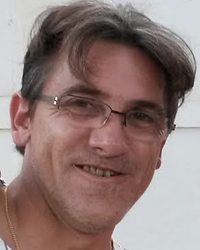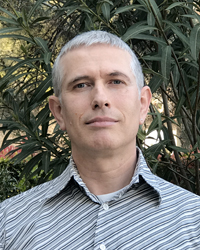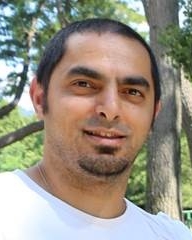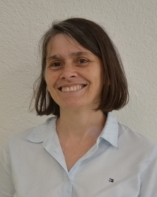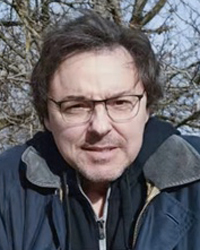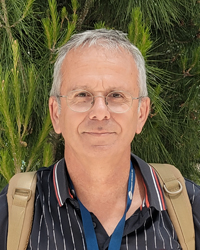The DSBC team is mainly involved in analytical chemistry (separation sciences) and physical organic chemistry (reactivity) for the study and the characterization of biomolecules. DSBC research topics are organised according to three major directions:
- Capillary electrophoresis methodologies
- Taylor dispersion analysis
- Prebiotic chemistry, systems chemistry and the emergence of life
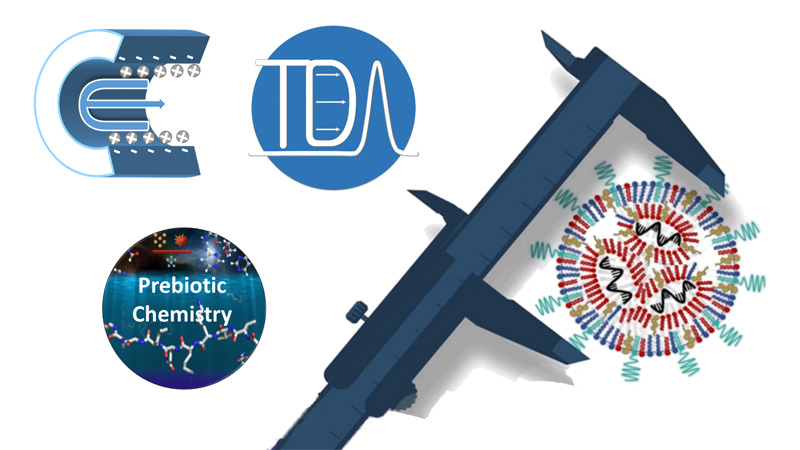
Our Themes
Capillary electrophoresis methodologies
We are developing all modes of CE methodologies for the characterization of biomolecules, biopharmaceuticals (including vaccine formulations such as mRNA lipid nanoparticles), (bio)polymers, proteins, polyelectrolytes, drug delivery systems, dendrimers, nanoparticles, colloids and bacteria. These modes include free solution and gel-based separations, zone and frontal modes, mobility-shift affinity mode, micellar / microemulsion modes, isoelectric focusing, isotachophoresis, preconcentration strategies, 2D-separations in a single capillary. We are both interested in fundamentals (separation efficiency, adsorption phenomenon, mobility modeling) and practical (or industrial) applications of CE.
Recent advances include fundamental understanding and practical solutions to optimize separation efficiency and to limit solute adsorption using capillary coatings based on polyelectrolyte multilayers (SMIL). Our expertise is also devoted to the study of biomolecules interactions (stoichiometry and binding constants) including complex molecular systems such as antigens / adjuvant in vaccines, active ingredient / protein or protein / polyelectrolytes.
Taylor dispersion analysis
We are developing methodologies based on Taylor dispersion analysis (TDA) for the characterization of complex (bio)molecular systems. Advanced data processing of the taylorgrams were developed to extract the size distribution of all detected soluble species contained in the analyzed sample. Modern miniaturized TDA is performed in a capillary with low injection volumes (about nL) and fast analysis (few min). TDA is a straightforward and absolute sizing method that does not require any calibration, nor sample filtration. Developed applications include the sizing of lipid nanoparticle (LNP), the monitoring of aggregative process (such as beta-amyloid peptide aggregation), the study of biomolecular interactions (for instance in vaccine formulation) or the characterization of drug delivery systems (such as Self-emulsifying drug delivery systems, SEDDS). We are both interested in fundamental and practical aspects of TDA.
Recent advances include fundamental understanding and practical solutions to limit solute adsorption, the optimization of operating conditions, and the development of new applications at the interface with biology / biomedical sciences.
Prebiotic chemistry, systems chemistry and the emergence of life
The transition towards the living state is studied through a dynamic approach based on the application of physicochemical principles. The Darwinian description of biological evolution can thus be integrated into a wider view starting from far-from-equilibrium chemical systems including replicators or autocatalytic loops (Systems chemistry). We are involved in the study of thermodynamic constraints governing these dissipative systems capable of giving rise to emergent properties. Concerning the experimental aspect, our team focuses its interest on the chemistry of amino acids with the aim of demonstrating how certain properties (e.g. homochirality) can be selected by the transformation of high-energy derivatives (α-amino acid N-carboxyanhydrides (NCAs) or 5(4H)-oxazolones for instance). Their interaction with nucleotides is susceptible of generating chemical intermediates closely related to the biochemical protein synthetic pathways and then likely to have been involved in the emergence of translation.
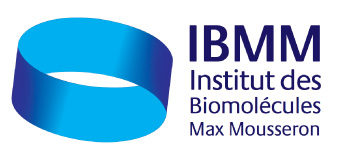
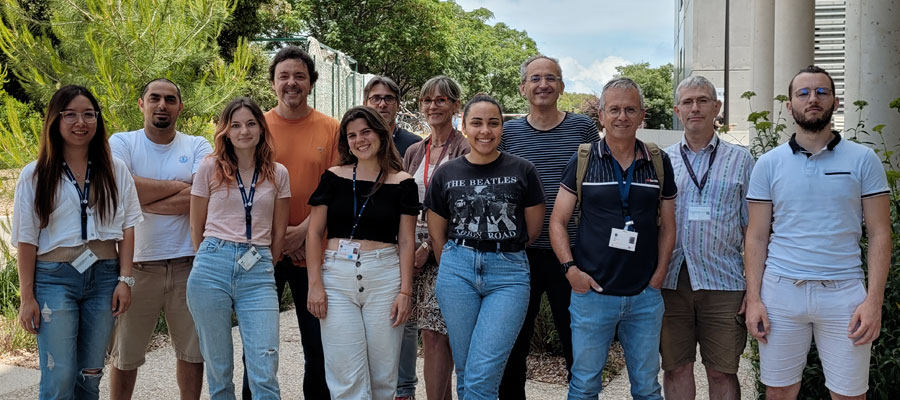
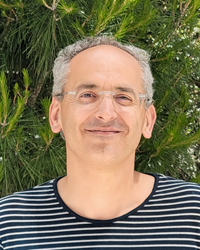 Hervé COTTET
Hervé COTTET